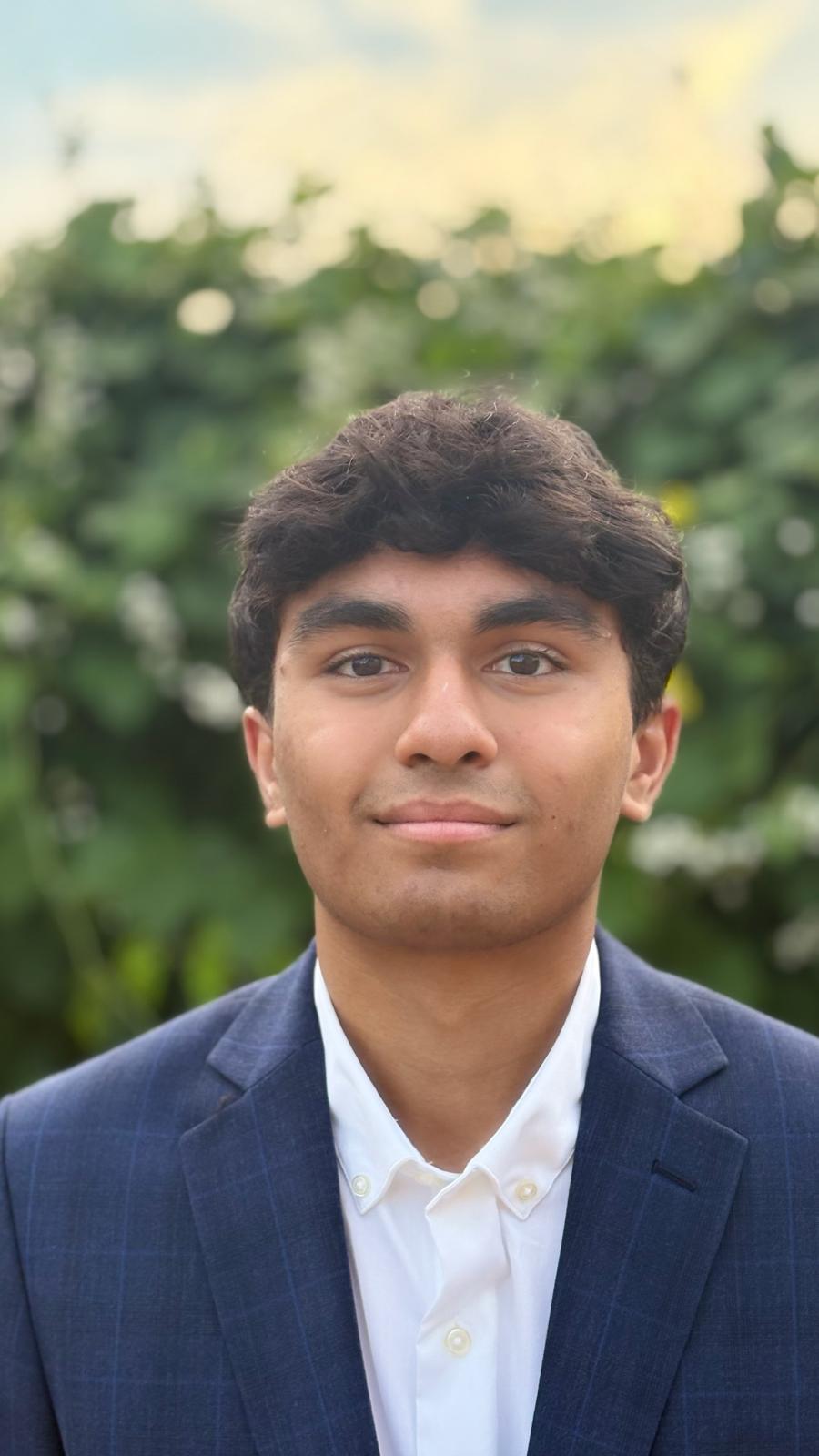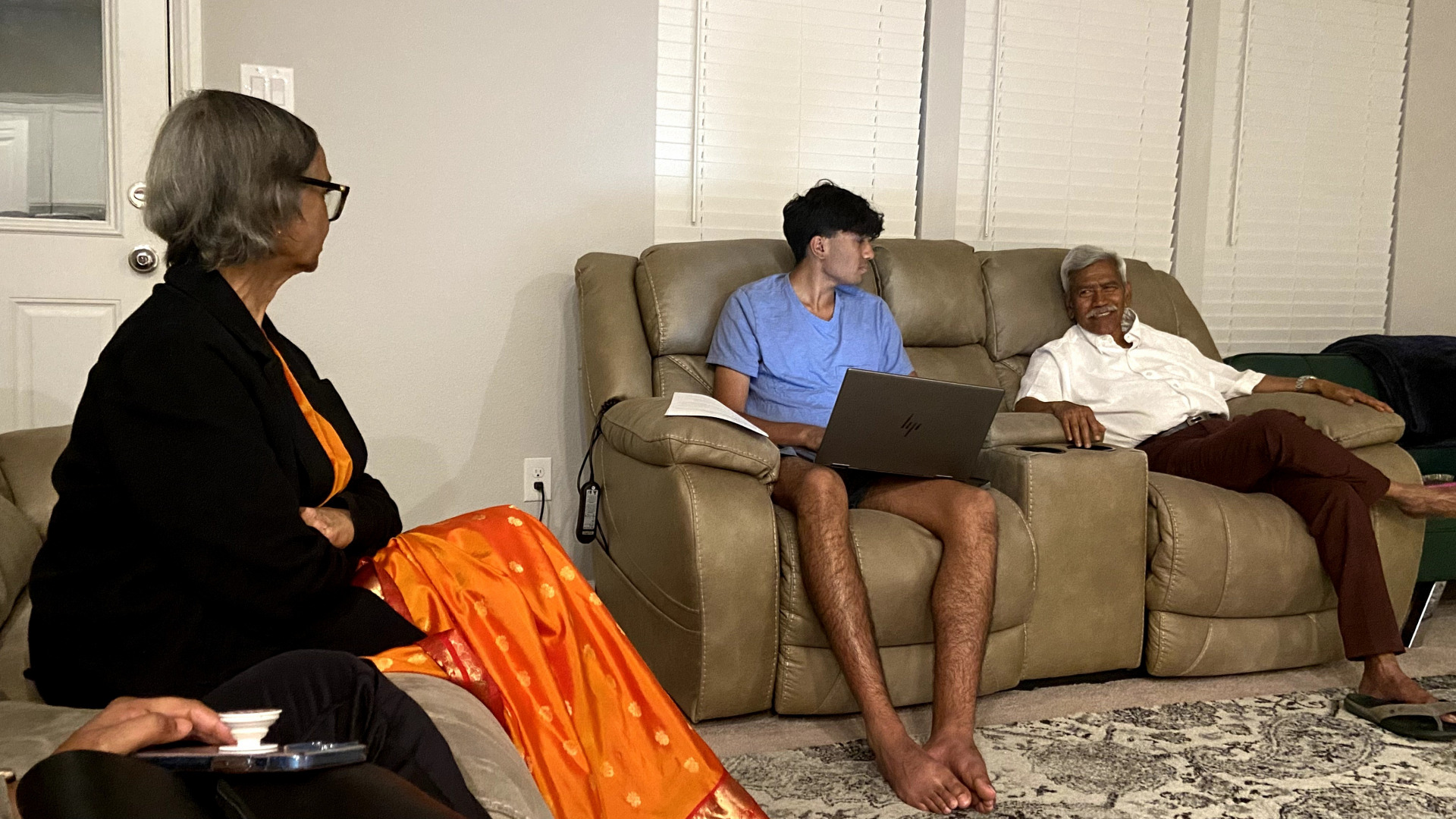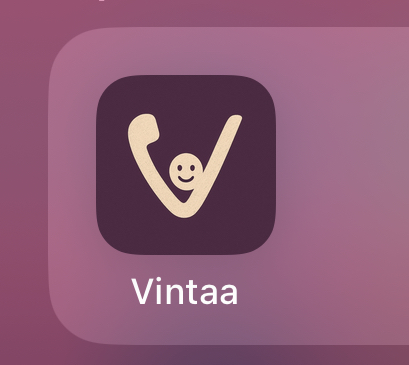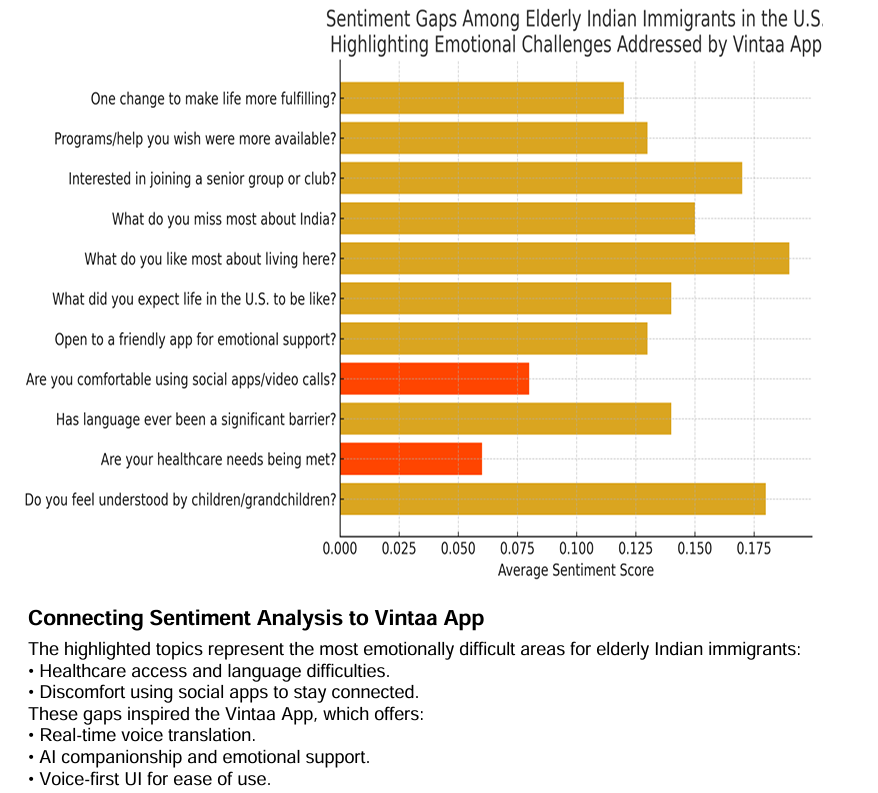Meet Prasuna Mihira Madasu | Founder of Vintaa


We had the good fortune of connecting with Prasuna Mihira Madasu and we’ve shared our conversation below.
Hi Prasuna Mihira, we’d love to hear more about how you thought about starting your own business?
The idea for Vintaa didn’t begin as a business—it started as a personal mission.
Growing up in a multigenerational household, I often saw how language and cultural gaps created emotional distance between elderly immigrants and the world around them. My own grandparents, who once led rich and active lives in India, suddenly felt isolated here—not just because of geography, but because of unfamiliarity with the language, technology, and lifestyle.
I started asking questions:
Why do they hesitate to ask for help? Why does a simple doctor’s appointment feel so stressful? Why do they avoid conversations, even with family?
Through conversations and even sentiment analysis from recorded interviews, I noticed a pattern: seniors were not lacking love or support—they were missing understanding and access. That emotional disconnect sparked the idea of Vintaa—an AI-powered companion app that could speak their language, understand their needs, and make them feel heard.
My thought process was simple:
If we can use AI to answer trivia, write code, and automate work, why can’t we use it to help our elders feel seen and supported?
Vintaa was born out of empathy, not enterprise. But the more I shared it, the more I realized its potential to touch lives far beyond my own home. That’s when it truly became a business—with a heart.

Alright, so for those in our community who might not be familiar with your business, can you tell us more?
Vintaa is more than an app—it’s a mission to bridge generations, cultures, and emotional distances using technology. It’s a virtual AI companion created for elderly immigrants who often find themselves isolated in a new country, surrounded by language barriers, unfamiliar technology, and limited social connection.
What sets Vintaa apart is its deep empathy-first approach. While many apps focus on functionality, we focused on feelings—loneliness, nostalgia, frustration—and built Vintaa from there. It includes features like speech-to-speech translation, an AI friend that can talk like a human, and culturally rooted design choices that make seniors feel understood and respected.
The journey wasn’t easy. As a young founder still in school, balancing technical development with research, interviews, and emotional insight was challenging. I interviewed multiple dozens of seniors, including my own grandparents, and heard stories of feeling invisible in everyday life—from not being able to explain symptoms at a doctor’s visit to struggling with basic smartphone functions. Many cried, some laughed, and almost all asked, “Can I really talk to this app like it’s my friend?” That was the moment I knew this was more than just a student project.
There were technical hurdles—especially in getting voice recognition to understand Hindi and Telugu, translating it accurately while preserving names and cultural meaning, and then speaking it back clearly. We had to experiment with language masking techniques, custom text-to-speech tuning, and UI design choices that wouldn’t overwhelm seniors. We didn’t have a big team or budget—just purpose, persistence, and late-night testing.
I’m proud that Vintaa was born out of real human connection. And I’m even more excited about where it’s going.
Our long-term vision includes:
Fraud protection alerts (e.g., common scam calls targeting seniors)
Health reminders for medication, hydration, and appointments
Devotional content like bhajans and slokas in native languages
And, of course, expanding the AI companion to become a true “forever friend”
What I want the world to know is this:
Technology should never leave anyone behind. Vintaa is proof that empathy and innovation can go hand in hand. If we can bring even one smile to a lonely grandparent’s face or help one family feel closer across cultures, then we’ve already succeeded.

Let’s say your best friend was visiting the area and you wanted to show them the best time ever. Where would you take them? Give us a little itinerary – say it was a week long trip, where would you eat, drink, visit, hang out, etc.
If my best friend were visiting for a week, I’d make sure they left with a full heart, a full stomach, and a phone full of memories. Dallas–Fort Worth is vibrant and diverse, and I’d want to show them every flavor of it—from the soulful to the scenic.
Day 1 – Welcome Home (Indian Touch):
We’d start with a comforting South Indian breakfast at Saravanaa Bhavan or Biryani point, then head to Radha Krishna Temple of Dallas in Allen—a peaceful and spiritual start to the week. In the evening, we’d walk around Watters Creek—great views, lights, and a welcoming vibe.
Day 2 – Urban Vibes:
We’d take a DART ride into Deep Ellum to enjoy the local art, murals, and music scene. Lunch at Favorite Pizza place is a must. That night, we’d head to Legacy West in Plano—outdoor vibes, fountains, and world cuisines.
Day 3 – Museums & Culture:
A cultural day with a trip to The Perot Museum of Nature and Science and the Dallas Museum of Art. Dinner at Spice Bazaar or Anjappar Chettinad. If they’re up for a movie, we’d hit Cinemark Legacy XD—which often plays Indian releases!
Day 4 – Chill & Connect:
A slow morning with chai and conversation at Tea Kettle Café. We’d spend the afternoon walking the Arbor Hills Nature Preserve in Plano. Later, we’d do a family-style dinner at home, introducing them to our home-cooked specials—maybe some Telugu-style dal and tamarind rice.
Day 5 – Sports & Skyline:
A day trip to AT&T Stadium in Arlington or a Texas Rangers game if it’s the season. Then back to Dallas to watch the skyline light up from Reunion Tower.
Day 6 – Shopping & Stories:
A relaxed day at Stonebriar Mall or Allen Premium Outlets for some retail therapy. In the evening, we’d attend a local storytelling or open mic night—DFW has a growing spoken word scene and it’s a great place to hear voices from different cultures.
Day 7 – Day 7 – Reflections & Roots:
We’d close out the trip with a visit to Klyde Warren Park and brunch from the food trucks. Then a slow walk through White Rock Lake, sharing reflections, stories, and maybe even ideas for their own version of the Vintaa app!

The Shoutout series is all about recognizing that our success and where we are in life is at least somewhat thanks to the efforts, support, mentorship, love and encouragement of others. So is there someone that you want to dedicate your shoutout to?
Absolutely—this journey wouldn’t have been possible without the voices and hearts of others.
First, I want to thank all the elderly Indian immigrants who generously shared their stories with me during interviews. Listening to them talk about homesickness, language barriers, cultural isolation, and small joys was not just eye-opening—it became the foundation for why I built Vintaa in the first place. Their honesty shaped every feature of the app, and their emotional courage continues to inspire me.
I also owe a deep thanks to my grandparents—my earliest users, most patient testers, and biggest cheerleaders. Watching them smile when Vintaa translated Hindi into English—or simply responded like a caring friend—showed me the real impact of this project.
So this shoutout goes to them, and to every senior who has ever felt unheard or alone. Vintaa exists because of you, and for you.
And of course, a big thank you to Shoutout DFW for featuring Vintaa’s story and giving a platform to young creators trying to build something meaningful for their communities. Your recognition helps us move one step closer to making technology feel like family.
Other: Vintaa iOS App on appstore.



Image Credits
Bharath Sarigala and Mina Sarigala
